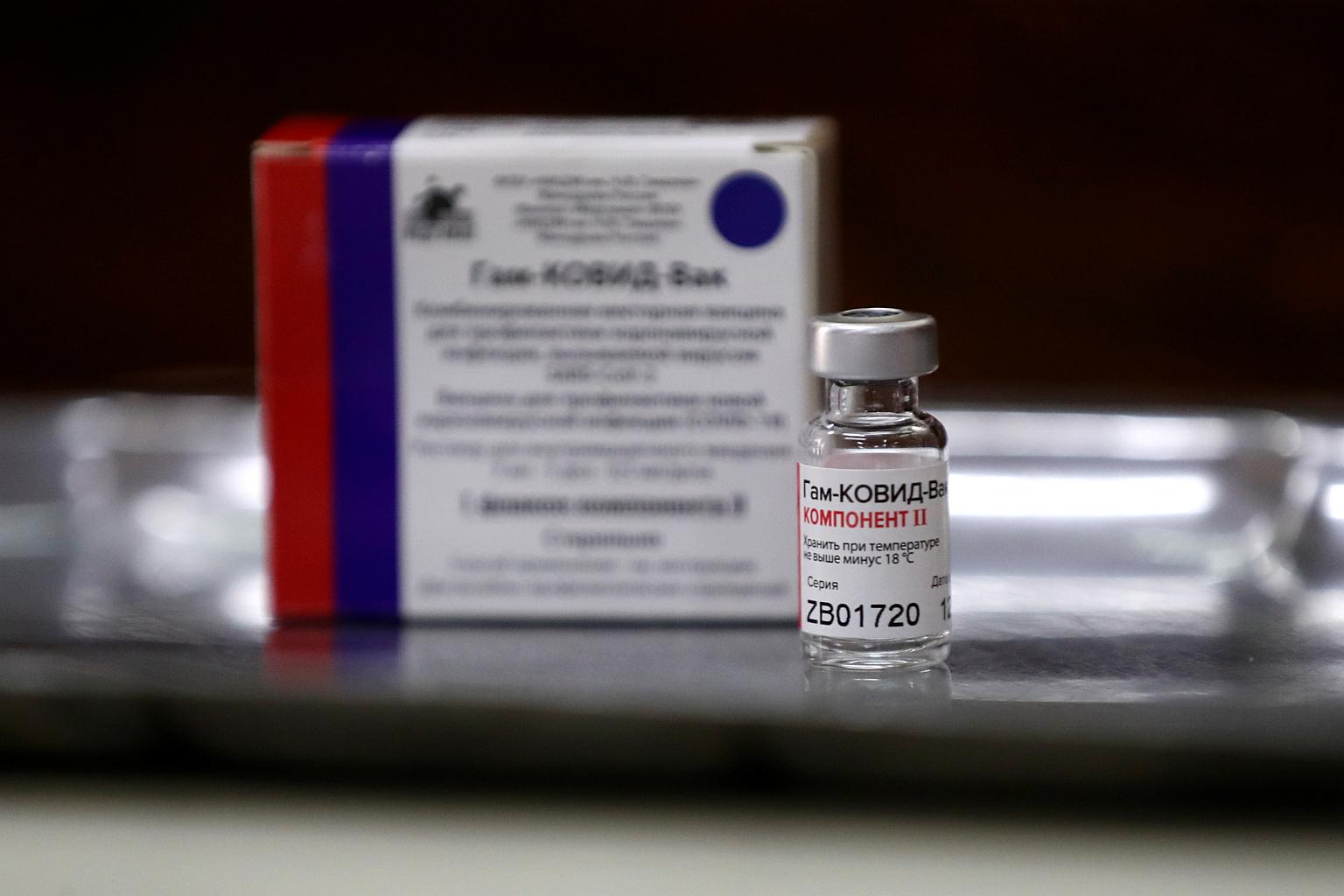Hungary orders two million doses of Russian Covid-19 vaccine
Sign up now: Get ST's newsletters delivered to your inbox

Hungary became the first EU member to break ranks and approve the Sputnik V vaccine.
PHOTO: REUTERS
BUDAPEST (AFP) - Hungary said on Friday (Jan 22) it had reached a deal to buy two million doses of Russia's Sputnik V coronavirus vaccine, even though it has not been approved by the European Union.
The deal, signed in Moscow, comes a day after Hungary became the first EU member to break ranks and approve Sputnik V, as well as the AstraZeneca-Oxford vaccine.
"Hungary is buying two million doses of the Sputnik V vaccine, enough to inoculate one million people," Foreign Minister Peter Szijjarto told a joint press conference with his Russian counterpart Sergey Lavrov.
Mr Szijjarto did not say when the rollout would begin but said 300,000 two-dose vaccines of Sputnik V would be delivered in the first month, 500,000 in the second month and 200,000 in the third month.
Hungary's National Public Health Institute (NNK), which must sign off on the drug's use, indicated that mandatory testing of Sputnik V could take several weeks longer.
Often clashing with Brussels on policies - especially on migration - Hungary has repeatedly criticised what it says is the slow pace of vaccine approval and procurement by EU authorities.
"We should face the fact that something has gone wrong with the EU," nationalist Prime Minister Viktor Orban said in a weekly radio interview on Friday. "If there is no vaccine from the Union, let it come from elsewhere. It is not possible that Hungarians die because of this."
According to regulations from the EU's Amsterdam-based European Medicines Agency (EMA), a national regulator may grant an interim licence for a vaccine in an emergency situation.
"Parallel negotiations with vaccine companies with whom we already have contracts, or with whom we're already negotiating contracts are not admitted," European Commission spokesperson Stefan de Keersmaecker told reporters Friday.
"It is however possible for member states, if they wish to do so, to start negotiations or even sign contracts with vaccine developers that develop vaccines that are out of the scope of our vaccine strategy," he said, adding that "this then comes with some liabilities for the member state".
Only two vaccines have so far been approved by the EMA: Pfizer-BioNTech and Moderna.
Budapest said on Thursday that its drug regulator had given emergency approval to both the AstraZeneca-Oxford and Sputnik vaccines.
"It doesn't matter if the cat is black or white, as long as it catches the mouse," Mr Orban said.
The EMA is currently evaluating the AstraZeneca-Oxford drug and has said a decision on its approval could come before the end of next week.
"As long as (authorisation) by EMA is not granted, the doses cannot be distributed," said Mr de Keersmaecker.
The EU stresses "the importance of having vaccines assessed by the European medical agency because they have a very thorough framework," he added.
Russia filed an application for the registration of Sputnik V with the EMA on Wednesday.
However, the EMA said the vaccine was "not undergoing a rolling review".
Sputnik V currently faces widespread scepticism among Hungarians.
It is the preferred vaccine of just two per cent of those willing to receive a jab, according to a recent survey - far behind Pfizer-BioNTech and Moderna.
Russia registered Sputnik V - named after the Soviet-era satellite - in August, months ahead of Western competitors but before the start of large-scale clinical trials, which left some experts wary.
"Hungary is the first EU country to realise all the advantages of Sputnik V vaccine," Kirill Dmitriev, CEO of the Russian Direct Investment Fund, said in a statement.
The Hungarian government also said this week it had "effectively agreed to receive one million vaccines immediately" of the Chinese-made Sinopharm jab, pending approval by Hungarian inspectors currently in Beijing.


